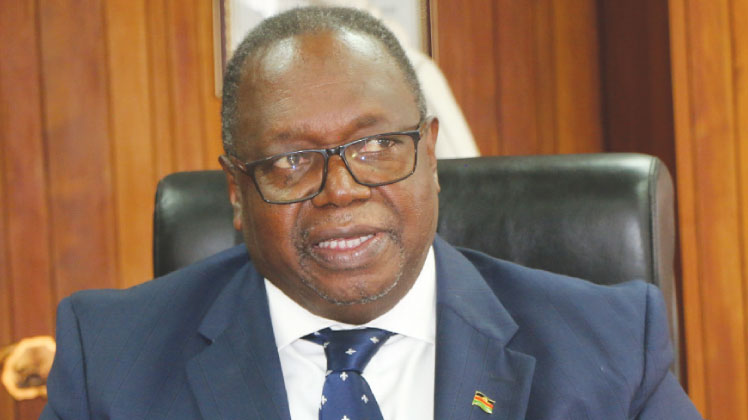RBM moves to increase financial inclusion by 75%
The Reserve Bank of Malawi (RBM) has outlined an ambitious plan to increase access to formal financial services to 75 percent from the current 46.1 percent of the adult population by 2027.
Speaking on Monday in Lilongwe during the opening of the four-day Alliance for Financial Inclusion (AFI) Working Groups Convergence Meeting, RBM Governor Wilson Banda said government has made the commitment in its revised National Strategy for Financial Inclusion.
He said the increase in access to financial services is expected to create economic opportunities and contribute to wealth creation and poverty reduction.
Said Banda: “The concept of financial digitisation has proven to be a key pillar for financial inclusiveness, especially during the pandemic era.
“With this backdrop underpinning Malawi’s digitisation agenda, a Digital Financial Services Policy was embedded in different legislations to enhance the use of digital infrastructure.”
In his remarks, AFI director of policy, programmes and implementation Eliki Boletawa observed that the combination of rising costs of living in the wake of pandemics and geo-political tension, climate change, food and energy security and emerging vulnerabilities in the financial sector suggest that the next few years will be volatile and turbulent for the global economy, including developing countries.

He said: “In a global context of a ‘poly-crisis’, with a world economy expected to remain stressed, with inflationary pressures and slow growth in most regions due to heightened geo-political tensions, supply chain disruptions and climate shocks, there is a potential danger of financial inclusion being crowded out as attention focuses on macroeconomic and monetary stability.”
RBM executive director responsible for regulation Patrick Mhango said the central bank is studying the environment and also legal frameworks on the possibility of allowing the public to pledge movable assets as collateral as one way of increasing financial inclusion.
Speaking in an interview on the sidelines of the meeting, FDH Bank plc managing director Noel Mkulichi said financial inclusion is costly as there is need for gadgets and other channels, but was quick to add that the commercial bank ensures that it absorbs the gaps by providing solutions to the unbanked.





